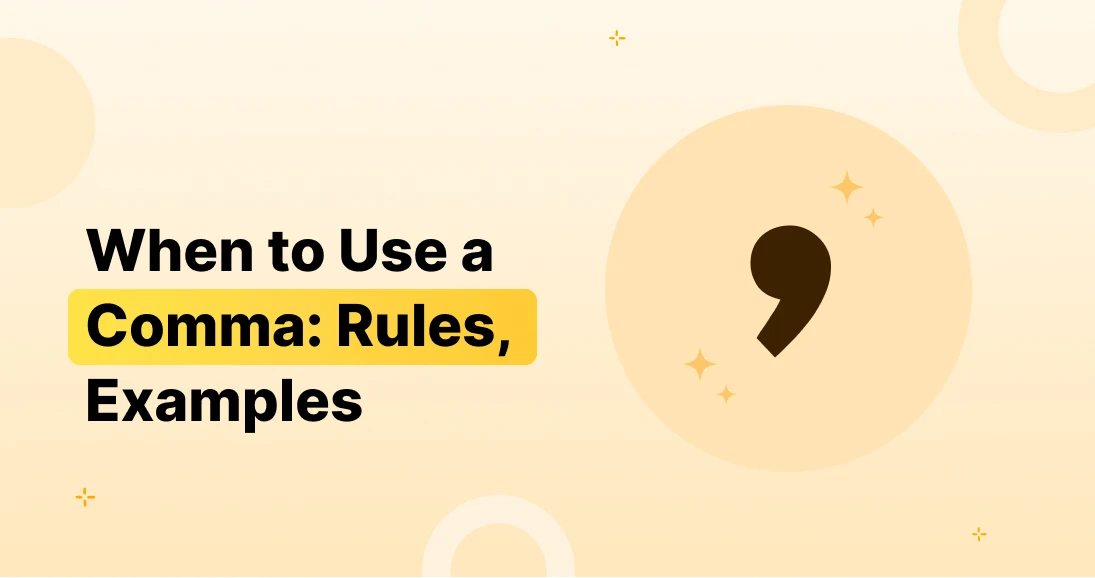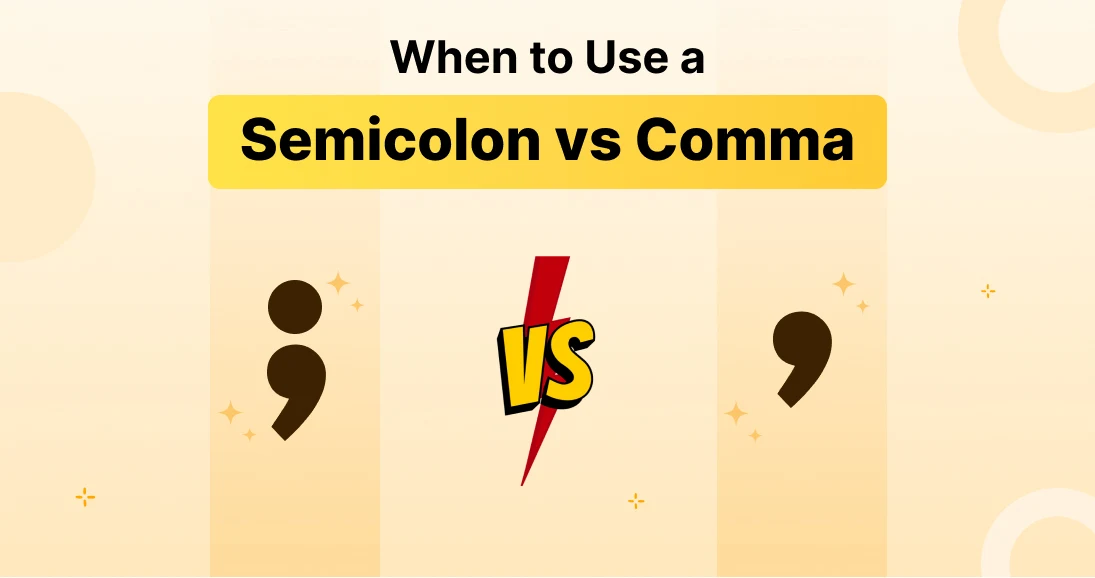When to capitalize job titles is one of the most asked questions in professional writing. Whether you’re updating your resume, writing a formal letter, or crafting a company bio, proper capitalization of job titles adds clarity and professionalism. Yet, many writers stumble over when to use uppercase versus lowercase—and that’s where this guide comes in.
In this blog, you’ll learn the rules for capitalizing job titles, the differences between formal and informal usage, and how grammar authorities define capitalization standards.
🔑 Key Takeaways
- Capitalize job titles when they appear before a person’s name.
- Do not capitalize job titles when they are used generically or after a name.
- Learn how to apply the rules to business writing, resumes, and formal documents.
- Understand how capitalization differs based on AP, Chicago, and MLA style guides.
- Bonus: We’ll also touch on related grammar concepts like When to Use a Semicolon, Semicolon vs Comma, and When to Use a Comma for a clearer grasp of sentence structure.
Why Capitalization of Job Titles Matters
Capitalizing job titles isn’t just about grammar—it’s about respect, professionalism, and clarity. Using the wrong format can make your writing appear sloppy or even misleading. So, should job titles be capitalized every time? Not quite.
There are some easy-to-follow rules and a few exceptions. Mastering them will improve everything from your internal emails to formal business reports.
General Rules – When to Capitalize Job Titles
Let’s break down the basic rules for when to capitalize job titles in formal writing:
1 – Capitalize Titles That Come Before a Name
If the job title appears before the person’s name, treat it like a proper noun.
Examples:
- Vice President Carla Lopez will attend the meeting.
- Marketing Director John Simmons approved the budget.
Here, “Vice President” and “Marketing Director” are capitalized because they precede names and act as part of the person’s official title.
2 – Don’t Capitalize When the Title Follows the Name
When job titles come after a name, they’re usually not capitalized—unless they appear on a formal list or business card.
Examples:
- Carla Lopez, vice president of operations, is leading the project.
- John Simmons, marketing director, joined in 2021.
These examples answer the common question: Do you capitalize position titles after a person’s name? Usually not—unless dictated by a style guide or formatting convention.
Are Job Titles Capitalized in All Formats?
Not always. Style guides differ, and context matters.
AP Style vs. Chicago Style vs. MLA
- AP Style (used in journalism): Capitalize job titles before names, lowercase after names.
- Chicago Style (used in books): Similar to AP but stricter on consistency.
- MLA Style (used in academia): Lowercase titles unless part of a formal heading or name.
This is where capitalizing titles gets nuanced. Each guide has its preferences, and your use case (e.g., press release vs. research paper) matters.
Should I Capitalize Job Titles in Resumes or Cover Letters?
Yes—but follow a logical pattern.
If you’re listing your past roles, capitalize the official job titles you held, especially if you’re citing them as proper nouns.
Examples:
- Software Engineer, Google
- Senior Content Strategist, Adobe
This is a common question from professionals: Should I capitalize job titles on resumes? Absolutely—when they refer to your own roles or someone’s specific position.
Quick Clarifications – Commonly Asked Capitalization Questions
Do You Capitalize Job Titles After Greetings?
Yes, if the greeting includes a specific job title.
Example:
- Dear Director of Communications,
But lowercase if it’s generic:
- Dear team,
This leads into a similar question—Is “be” capitalized in a title? If you’re writing a heading, title case applies, so “be” is typically not capitalized unless it starts the line.
Capitalizing Job Titles in Emails and Internal Communications
In informal settings like emails or team chats, it’s tempting to skip capitalization. But professionalism still counts—especially when you’re referencing specific roles.
Correct:
- Please loop in Project Manager Anika Singh for the final draft.
- Let’s notify Carlos, the operations’ coordinator, before publishing.
So, are job titles capitalized in emails? If you’re referencing a person formally or with respect, it’s better to capitalize the title—especially before the name. Otherwise, lowercase is usually acceptable. To stay safe, always review when to capitalize job titles in internal writing guides, if your organization has one.
Work Titles Capitalized in Formal Documents
In reports, presentations, or official memos, job titles are often capitalized, especially when used as part of someone’s identity.
Examples:
- We received the proposal from Director of Sales Jessica Bloom.
- The board met with Dr. Miles Carter, senior advisor, to finalize the deal.
Still wondering, do you capitalize job titles in documentation? Use capital letters when it’s a specific position and crucial to the context. But if you’re simply describing a function or role, lowercase is correct. Remember, knowing when to capitalize job titles can affect how your audience perceives the tone and authority in your documents.
How to Handle Job Titles in Signature Blocks or Bios
When writing bios, LinkedIn summaries, or email signatures, capitalize the title because it acts as a label of authority or identity.
Signature example:
Ayesha Kaur
Senior Legal Consultant
XYZ & Associates
This use of capitalizing job titles is more stylistic than rule-based. But it reflects industry standards and helps you appear polished and credible. If you’re still unsure when to capitalize job titles in public-facing materials, stick to the rule: capitalize it when it’s used formally as part of a name or introduction.
Exceptions: When Job Titles Should NOT Be Capitalized
Not every mention of a title needs capital letters. Here are a few examples when you should not capitalize:
- Describing a job generically (e.g., The company hired a new manager.)
- Referring to multiple roles generally (e.g., All directors and supervisors must attend.)
So next time you wonder, should job titles be capitalized all the time? The answer is: Only when they’re part of a proper name or formal identifier.
Title Capitalization in Headlines and Titles
Headlines follow a style called “title case,” where major words are capitalized, but smaller ones like “is” or “be” are usually not—unless they’re the first word.
So, to answer the common style question: Is “be” capitalized in a title? No, unless it begins the heading.
Example:
✔️ When to Capitalize Job Titles: Grammar Rules You Must Know
❌ When To Capitalize Job Titles: Grammar Rules You Must Know
Final Thoughts — Mastering the Rules of Job Title Capitalization
Learning when to capitalize job titles takes a bit of attention to context and consistency. But once you master the core rules, you’ll elevate your business writing, personal branding, and professional tone.
Before we wrap up, let’s briefly clarify a few related topics that tie into professional writing:
- When to Use a Semicolon: Use it to join closely related independent clauses not joined by a conjunction.
- When to Use a Comma: Insert commas to break up clauses, after greetings, and to avoid confusion in longer sentences.
- Semicolon vs Comma: While both separate ideas, semicolons link independent clauses; commas often add a pause within one.
Whether you’re editing resumes, writing blogs, or updating your LinkedIn bio, applying the correct job title capitalization rules will make your writing shine. And always remember, one of the clearest ways to appear polished is simply knowing when to capitalize job titles.
Bonus Tip 💡
If you struggle with grammar consistency, try tools like AI-powered writing assistants. Many of them offer text shortcuts, iPhone text effects, and even teach you how to use quotation marks correctly. Some, like the FotoAI Keyboard App, go a step further by providing smart suggestions, custom fonts, and even shrug emoji text on demand.






